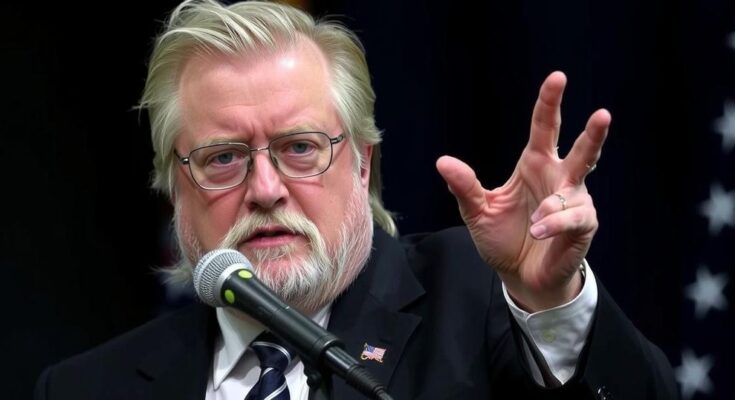Steve Bannon predicts that Donald Trump’s second term will begin with a fiercely aggressive policy agenda, drawing similarities to FDR’s pivotal first 100 days. With significant appointments aimed at addressing issues like immigration, the administration is poised for swift action, leveraging a Republican majority in Congress to enact substantial legislative changes.
In a recent interview, Steve Bannon, former adviser to Donald Trump, forecasted that the upcoming first 100 days of Trump’s second term would redefine the political landscape with a ruthlessly aggressive agenda. Drawing comparisons to Franklin D. Roosevelt’s transformative initial days in office, Bannon suggests Trump’s administration will go beyond expectations, driven by a cadre of politically savvy appointees poised to tackle issues like immigration and financial reform. With a Republican majority in Congress, he predicts a swift and decisive legislative push that aims to reshape existing policies drastically. Bannon has been instrumental in shaping Trump’s vision, having previously anticipated Trump’s return to the Oval Office with confidence. He describes Trump’s leadership as built on a foundation of experienced personnel dedicated to executing a focused agenda. “The one common quality I think is [they will all be] very aggressive on the implementation of President Trump’s policies,” he said. “Now we have the House and the Senate. You’re hearing things out of the House and Senate that there’s support of his legislative agenda, for executive action, all of it.” Key figures being appointed underscore this aggressive approach: Tom Homan is set to spearhead immigration efforts as Trump’s “border czar,” while controversial figures like Matt Gaetz and Tulsi Gabbard will deepen the administration’s influence over the judicial and intelligence sectors. Bannon believes these appointments mark a deliberate shift from the previous administration toward a more combative stance against opposition forces, emphasizing the need for robust legal action to clear what he perceives as bureaucratic roadblocks in the Department of Justice. Bannon’s insights reveal much about the perceived urgency within the incoming administration to tackle crises ranging from immigration to economic instability. With terms like “action, action, action” resonating as rallying cries, it is evident that Trump’s second term is envisioned as a direct response to pivotal national challenges, reminiscent of the profound governmental shifts seen during FDR’s New Deal era. As Bannon elaborates, the administration’s strategy will hinge on a synthesis of competent leadership and unwavering commitment to Trump’s core policies, setting the stage for a potentially tumultuous political climate ahead.
Steve Bannon’s assertions highlight a dramatic transformation anticipated in Trump’s second term, contrasting sharply with his first tenure. His commentary provides insight into the broader political context, considering the current challenges facing the U.S., including a polarized electorate and pressing immigration issues. The parallels Bannon draws with FDR’s historic first 100 days serve not only as a reference point but also as a stark warning regarding the intensity and scope of policies likely on the horizon. This framing positions Trump’s impending administration in a crucial role amid escalating national crises, drawing from lessons of the past while focusing on immediate and actionable measures to address contemporary issues.
Overall, Bannon’s expectations suggest a presidential term marked by substantial and fervent policymaking. This proactive vision proposes to not just confront but actively reshape the existing political landscape. With a team assembled around a unified conservative ethos, Trump’s new administration is poised to operate with a sense of urgency reminiscent of the economic and social upheavals faced during the early 20th century. As the stage is set for a collision of ideologies, the implications for both the Republican Party and the nation may prove profound.
Original Source: www.newsweek.com



